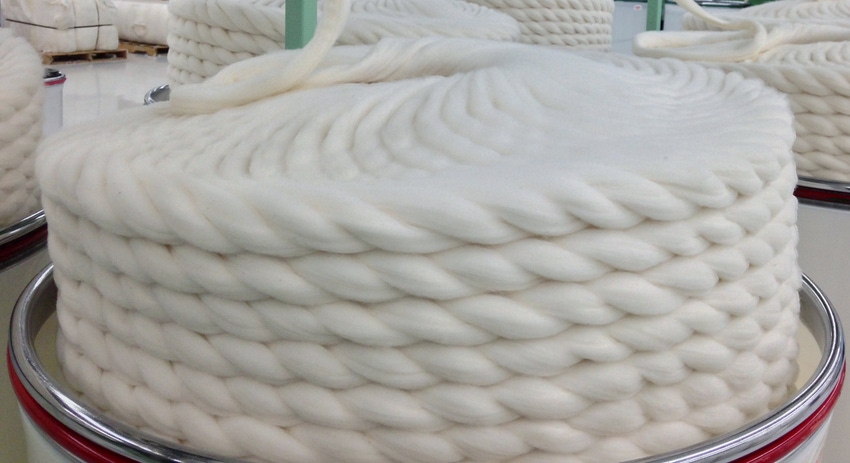July 12, 2017

Agricultural Research Service materials engineer Sunghyun Nam developed an inexpensive, effective and environmentally friendly method to kill bacteria by creating silver nanoparticles inside cotton fibers.
For more than a century, clothing and medical supplies have included silver as an antimicrobial agent. However, washing tends to remove silver's powerful antimicrobial properties.
The amount of silver nanoparticles required to kill bacteria is extremely small, making them cost efficient.
Nam and her colleagues at the ARS Southern Regional Research Center in New Orleans, Louisiana, used a new process to create a silver-cotton nanocomposite fiber for use in applications such as bandages, disposable undergarments, shoe liners, upholstery and bedding.
Since the nanoparticles are trapped inside the fabric and not on the surface, they release slowly, thus protecting against harmful bacteria longer and increasing cotton fiber strength, according to Nam. The silver-cotton nanocomposite fiber, made from this process, continued to kill harmful bacteria after 50 washings.
Silver nanoparticles, which range from 1 to 100 nanometers in size, kill more than 600 kinds of bacteria, including the common kitchen microbe E. coli. A human hair is about 80,000 to 100,000 nanometers wide.
In the future, Nam and her team plan to develop and evaluate antimicrobial fabric floor wipes.
Read more about this research in the June 2017 issue of AgResearch magazine.
You May Also Like




